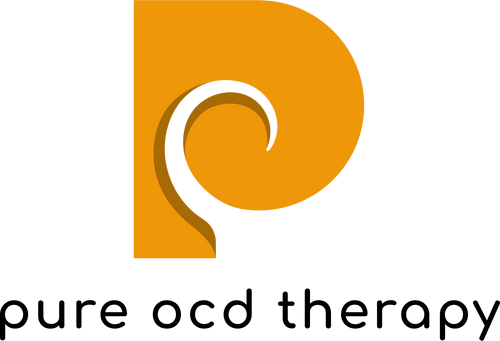FAQ
We are here to help you!
Therapy hasn't worked for me in the past. How do I ensure this time will be different?
Sadly, many individuals have shared that therapy in the past has not been helpful. There are various reasons for this. Some may have been misdiagnosed or treated for the wrong disorder. Others might have received a less effective form of treatment or worked with a therapist who lacked the necessary skills. Interpersonal issues could also prevent a strong connection with the therapist, or it may not have been the right time for the individual to fully engage in therapy. Whatever the reason, it is important to discuss these experiences with the next therapist to determine what needs to be different moving forward. We have found that most individuals who make an effort to engage in exposure therapy do make progress and see a reduction in their symptoms. In fact, many have made life-changing progress in therapy.
I've heard bad things about exposure therapy and I'm scared to try it. What's it really like?
Exposure therapy is misunderstood by many people, even other therapists. Some people have a misconception that exposure therapy is extremely distressing and that most people are too fragile to be able to tolerate it. It is known that exposure therapy temporarily increases anxiety, but what many people fail to recognize is that people with OCD, anxiety disorders, and trauma are already experiencing distress. The kindest thing we can do for people living with these issues is to offer a fast, effective treatment that will help decrease distress and anxiety in the long-term.
What is the No Surprises Act?
You have the right to receive a “Good Faith Estimate” explaining how much your medical care will cost. Under the law, health care providers need to give patients who don’t have insurance or who are not using insurance an estimate of the bill for medical items and services. ● You have the right to receive a Good Faith Estimate for the total expected cost of any non-emergency items or services. This includes related costs like medical tests, prescription drugs, equipment, and hospital fees. ● Make sure your health care provider gives you a Good Faith Estimate in writing at least 1 business day before your medical service or item. You can also ask your health care provider, and any other provider you choose, for a Good Faith Estimate before you schedule an item or service. ● If you receive a bill that is at least $400 more than your Good Faith Estimate, you can dispute the bill. ● Make sure to save a copy or picture of your Good Faith Estimate. For questions or more information about your right to a Good Faith Estimate, visit www.cms.gov/nosurprises or call 800-985-3059.
Do you treat other types of OCD and anxiety?
Of course! We emphasize the treatment of pure OCD to create a safe space for individuals to discuss those concerns, but we genuinely enjoy working with people with any type of OCD. After all, therapy is not just about treating symptoms; it’s about collaborating with individuals toward a common goal. With many years of experience, we have worked with individuals facing contamination concerns, doubting/checking, symmetry/"just right," health anxiety, and other subtypes of OCD. Additionally, we are dedicated to treating various anxiety disorders, including generalized anxiety disorder, social anxiety, and panic disorder. Our approach is also effective for individuals dealing with trauma, utilizing evidence-based methods to help them process their experiences and reclaim their lives. By addressing these diverse concerns, we aim to support each person on their unique journey toward healing and growth.
How can I be sure therapy will be worth it?
Therapy is a big investment, both in terms of the time commitment and financially. There are never any guarantees, but your therapist should be able to lay out a reasonable plan for your treatment so you know what to expect. Once you've established what symptoms you want to work on and what goals you'd like to set (usually in the first few sessions), you should begin working on learning skills and applying them. You should start seeing results within the first few weeks or months. If you aren't seeing results, then it's time to reevaluate treatment with your therapist. It's okay to ask questions if you're feeling like therapy isn't moving as fast as you'd like. Also, you have a responsibility to make therapy effective as well. Good therapy will involve some work in between sessions, and generally the more involved you are with your care the better your results will be.
Contact
We are happy to answer any questions you may have about services or scheduling. Messages will be responded to typically within one business day.
